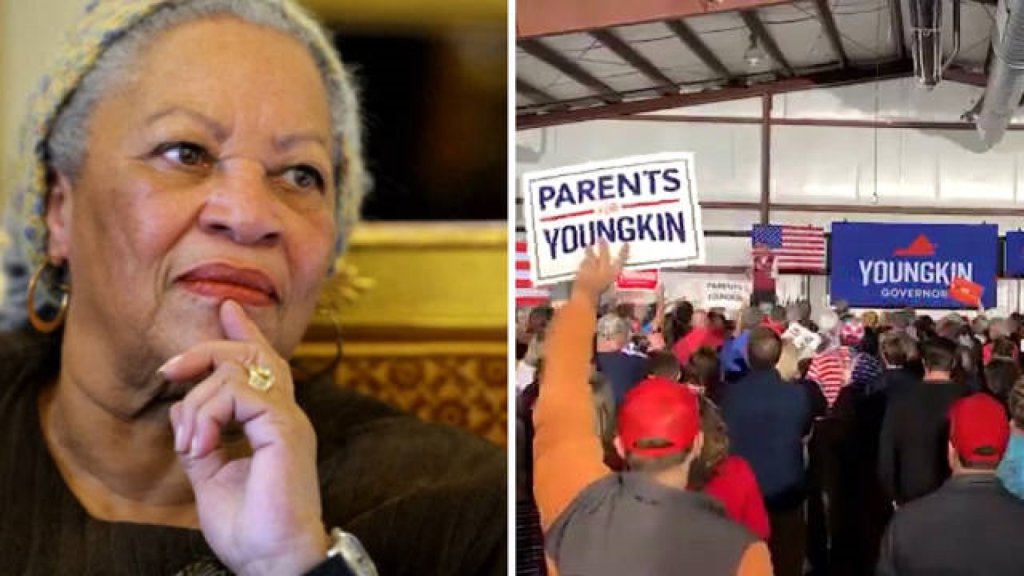(Akiit.com) During my matriculation as a Ph.D. candidate at Princeton Theological Seminary, one of the most provocative conversations I would ever have occurred during a forum of interdisciplinary doctoral students with a guest lecturer — one of my favorite authors, Toni Morrison.
Morrison had recently received the Pulitzer Prize for Fiction for “Beloved” — a novel based on an actual account about a Black woman who kills her own baby rather than seeing her child added to the inventory of property on a Southern plantation.
Students in the forum represented a variety of disciplines — from theology and ethics, my focus, to architecture, history, philosophy and politics. We examined every passage, every word and every idea presented and in some cases, challenged by Morrison.
And while many of us expressed our discomfort with the subject matter, we agreed that we could ill-afford to revise history to fit our personal preferences or squeamish sentiments.

As Morrison has often been quoted when asked about the book and her reluctance to broach the subject of the “invisible institution,” “I was keenly aware of erasures and absences and silences in the written history available to me — silences that I took for censure.”
And as one editor so eloquently shared in a recent Washington Post op-ed, those forces of erasure and censure “still haunt us” today.
During the recent gubernatorial race in the Commonwealth of Virginia, the newly-crowned governor, Republican Glenn Youngkin, gave new energy to an older debate about the appropriateness of books like Morrison’s “Beloved,” suggesting that it contains “sexually explicit content” which many parents continue to find both offensive and disturbing. He continued with his support of the proposal that parents should have the right to demand alternative assignments for any text that “prickled their sensibilities.”
So, what’s next?
Let’s go ahead and allow parents and students to opt out of an examination of the canon of American literature whenever their feelings are hurt. Let’s get rid of Salinger’s “The Catcher in the Rye,” Harper Lee’s “To Kill a Mockingbird,” Alice Walker’s “The Color Purple,” F. Scott Fitzgerald’s “The Great Gatsby” and Shakespeare’s “Romeo and Juliet.”
All of these books or plays contain controversial matter. All of these texts broach subjects that cause many readers to shudder, to experience heightened levels of anxiety and to sometimes get outright angry. But they reveal the world as it was and the way society viewed and treated the issues as addressed in each text.
Let’s return to the controversy about “Beloved.” Truth be told, there’s no way you can whitewash slavery. It was and remains a scourge on the spirit and history of America. And it’s not just Blacks who suffered because of this heinous, inhumane practice of chattel slavery. Whites were impacted too.
Of course, Blacks suffered the most: physically, emotionally, spiritually and economically. And while the chains may be gone from view, they remain, albeit invisible to the naked eye.
It’s unfortunate that the Democratic candidate for Virginia governor, Terry McAuliffe, misspoke when he said parents should not decide what’s taught in the classroom. I would hope that’s not what he meant to say.
Nonetheless, if we begin to allow parents or students to pick and choose the books they read because the subject matter ruffles their feathers, we may as well eliminate everything but fairy tales and nursery rhymes from the canon.
Oops, I forgot — some fairy tales cause children to experience sleepless nights and nightmares, too.
But then, history has the same effect — and not only on children but adults as well.
Banned & Challenged Classics
“The Great Gatsby” by F. Scott Fitzgerald
“The Catcher in the Rye” by JD Salinger
“The Grapes of Wrath” by John Steinbeck
“To Kill a Mockingbird” by Harper Lee
“The Color Purple” by Alice Walker
“Ulysses” by James Joyce
“Beloved” by Toni Morrison
“The Lord of the Flies” by William Go
Columnist; D. Kevin McNeir
Official website; https://twitter.com/mcneirdk








Leave a Reply